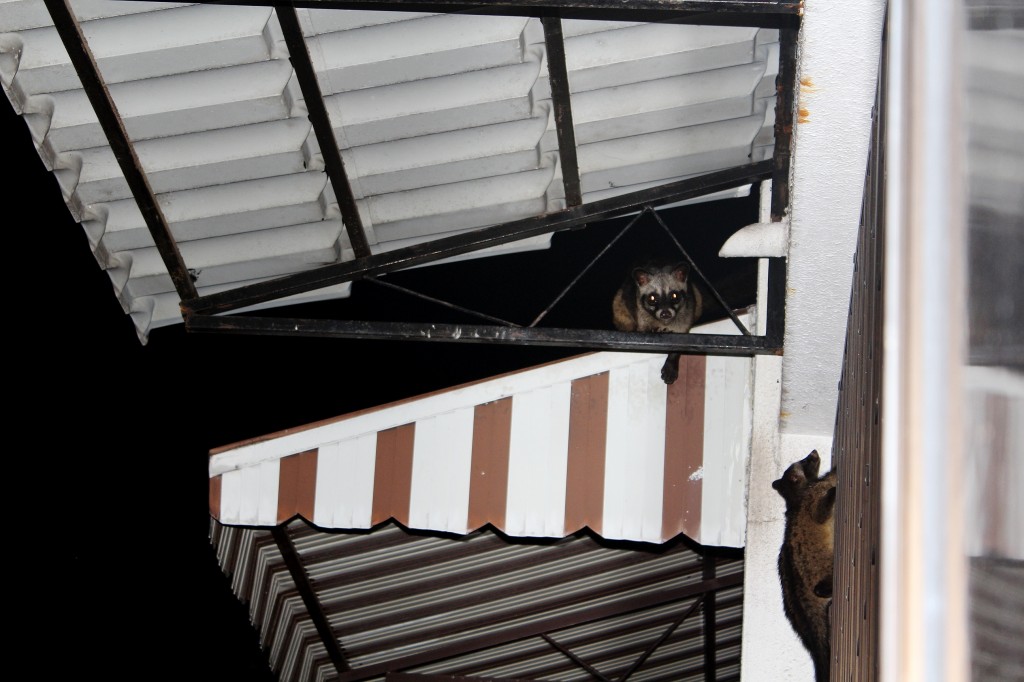Ivan Chew aka The Rambling Librarian sketches the “Angry Civet Cat” (#143: Project 365 Sketches) for his cute Angry Animal series this week!
Ivan wrote,
“Angry Civet Cat” (#143: Project 365 Sketches) 2013, Wed 23 May. As I was looking up Civet Cat pictures, I couldn’t help but associate those cute faces with Raccoons. Must be the black band across their eyes. Here’s an angry Civet Cat, looking indignant because of unscrupulous practices in harvesting “civet cat coffee”. #365sketches [CC-BY]”
Indeed, some members of the public have mistaken the common palm civet as the raccoon as they both have the characteristic eye masks across their eyes. We would then remind them that we do not have raccoons in Singapore and share some of the differences between the two animals! The common palm civet has three stripes along its back, spots on its sides and a long black tail which is as long as its body, sometimes with a white tip. Interestingly, although these two animals are found in different geographical locations, and are hardly related except that they are both in the Order Carnivora, both animals have managed to adapt to urban areas and thus face conflict issues with humans.
With the popularisation of Kopi Luwak (coffee made from coffee beans in civet poop), civet poop coffee may be threatening wild species of civets in the region. There have been increasing concerns regarding this trade as wild civets are being captured from wild, placed in small cages (civet farms), and are fed with coffee cherries only so that they excrete coffee beans used to make Kopi Luwak.
While fortunately, we do not have civet farms in Singapore, the common palm civet still faces other threats such as trapping, loss of habitats, being killed by dogs and being hit by cars. Hopefully, more people will embrace this native urban survivor, along with many of our other amazing wildlife, and we will have happy animals and people living in Singapore!
Do check out the many other drawings Ivan did as part of his Project 365 Sketches at http://myrightbrain.wordpress.com/.
Thank you Ivan for this awesome sketch!
Update (2 March 2014):
For more information on the trade of kopi luwak, please watch the BBC documentary “Our World Coffee’s Cruel Secret – Kopi Luwak” and find out what goes into a cup of civet coffee.
If you wish to do something for the civets, please visit Project LUWAK Singapore and show your support!








